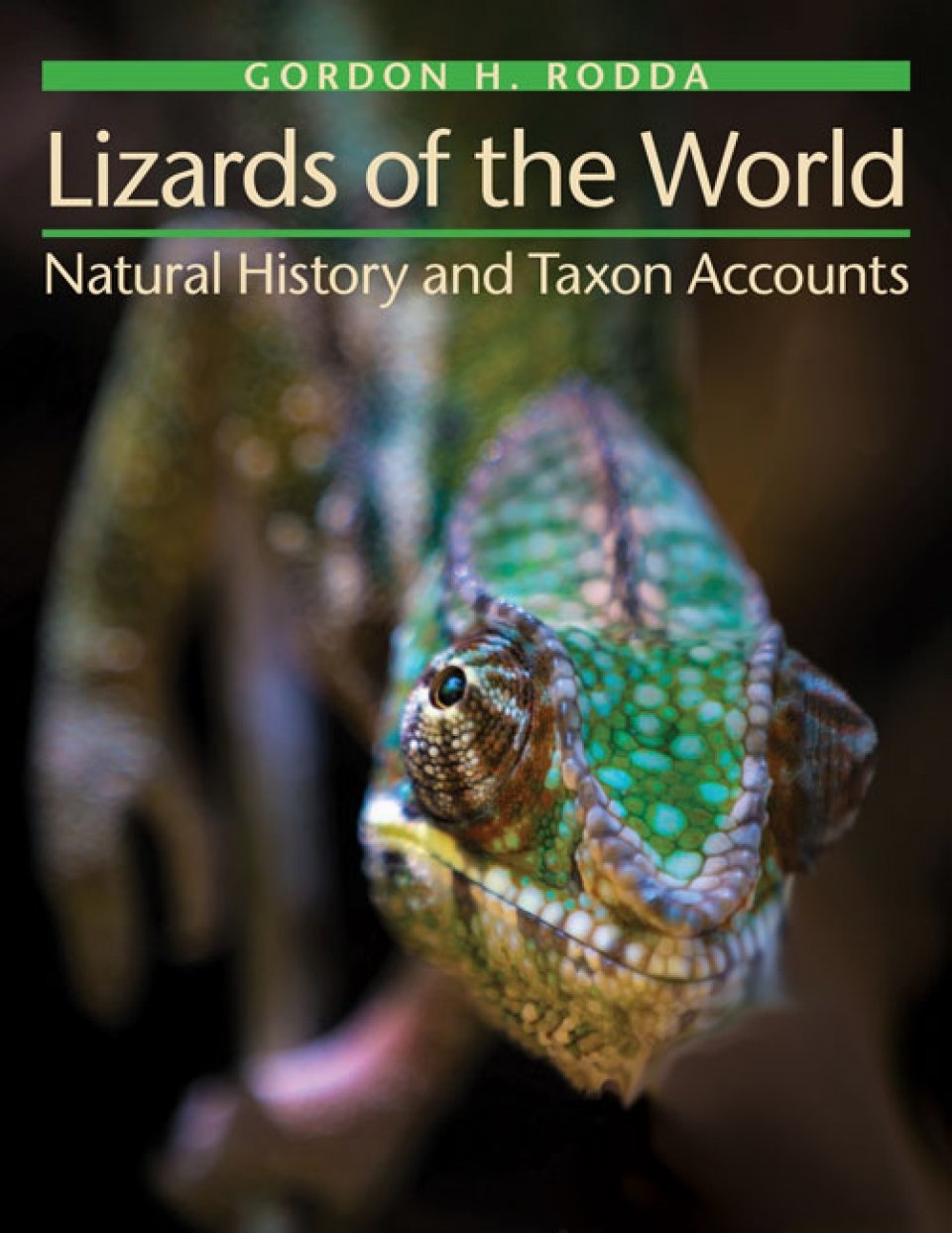| Autor | Gordon H. Rodda |
| Sprache | Englisch |
| ISBN | 9781421438238 |
| Verlag | Johns Hopkins University Press |
| Seiten | 832 |
| Größe | 228 x 287 x 56 mm |
| Bilder | Fotos und Illustrationen |
| Format | Gebunden |
| Erscheinungsjahr | 2020 |
Our planet is literally crawling with lizards. More than 6500 species are known to science, and new species are being discovered annually. In this monumental work, eminent researcher Gordon Rodda has created the first compilation of the natural histories of all the world's lizards and amphisbaenians, as well as the Tuatara.
Although other books have attempted to survey the scope of adaptations present in the world's lizards, only Rodda has been able to quantify and summarize all species or higher taxa. Analyzing the relationships among traits such as morphologic characteristics, reproductive strategies, and food sources, Rodda uncovers novel insights into reptile ecology. Identifying 14 recurring character syndromes across all the world's lizards, he proposes a new lens for categorization.
He also touches on:
- common names
- geographic range
- length
- mass
- age
- maturation
- differences between the sexes
- nominal variables, including diel activity cycle and foraging mode
- home range
- predator avoidance tactics
- thermal biology
- social spacing
- climate envelope
- habitat and microhabitat
- reproduction
- parental care
- diet
- population density
- conservation status
- ecological business models
Rodda's alphabetical taxon accounts provide an instantly retrievable sketch of every species, genus, and family. Outlining more than 1500 statistically significant associations extracted from a data matrix composed of more than 300 conditions tabulated-to the extent known-for all 6528 species of lizards, Lizards of the World will be the go-to source for the next generation of reptile ecologists, as well as herpetology students and serious herpetoculturists.
Contents
Chapter 1. Introduction and Methods 1
The Interplay between Ecological and Phylogenetic Causation
Definitions
Size Estimation
Analytical Methods
Chapter 2. What Are Lizards? 8
Composition
Morphology
Sexually Differing Traits
Geography
Activity
Reproduction
Diet
Populations
The Modal Lizard
Chapter 3. Linkages 21
Methods Unique to This Chapter
Mass
Morphology
Sexual Size Dimorphism
Color
Diet
Foraging
Time of Day (Diel Activity)
Predator Concealment Tactics
Microhabitat
Reproduction Allocation
Islands
Longevity
Population Density/Biomass
Introductions
Imperiled Lizards
Next Steps
Chapter 4. Ecological Business Models 83
Crack Hermit
Diurnal Canopy Walker
Giant Herbivore
Glider
Ground-foraging Tree Lizard
Immobility Expert
Litter Cryptozoid
Nocturnal Canopy Walker
Nocturnal Ground Lizard
Refugia-anchored Diurnal Ground Lizard
Sand Shark
Subterranean Forager
Trunk/Wall Lizard
Wide-ranging Chemosensor
Overview of Ecological Business Models
Chapter 5. Taxon Accounts 133
(alphabetical by family or genus name; use index to search by English name)
A (Ablepharus to Australolacerta)
B (Bachia to Bunopus)
C (Cadeidae and Cadea to Cyrtopodion)
D (Dactylocnemis to Dryadosaura)
E (Ebenavia to Exila)
F (Feylinia to Furcifer)
G (Gallotia to Gymnophthalmus)
H (Haackgreerius to Hypsilurus)
I (Iberolacerta to Isopachys)
J (Janetaescincus to Jarujinia)
K (Kaestlea to Kolekanos)
L (Lacerta to Lyriocephalus)
M (Mabuya to Morunasaurus)
N (Nactus to Nucras)
O (Oedodera to Ouroborus)
P (Pachycalamus to Pygopus)
Q (Quedenfeldtia)
R (Ramigekko to Rondonops)
S (Saara to Strophurus)
T (Tachygyia to Tytthoscincus)
U (Uma to Uvidicolus)
V (Vanzosaura to Voeltzkowia)
W (Woodworthia)
X (Xantusia to Xenosauridae and Xenosaurus)
Z (Zonosaurus to Zygaspis)
Acknowledgments 711
Appendices 713
A. Database Fields and Comments on Their Tabulation 713
B. Methods for Quantifying Lizard Sizes 745
C. Standards for Qualification of Absolute Population Densities 749
Literature Cited 753
Index 759


























